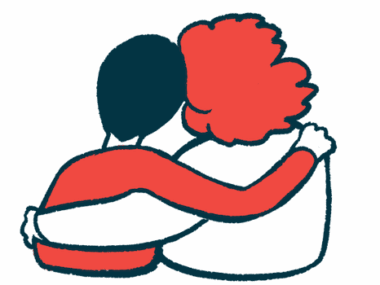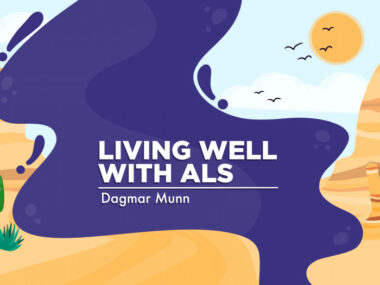Decisions, decisions: When to share the news that you have ALS
Waiting until I was 'ready' wasn't right for me — and maybe isn't for you, either
Written by |

When my doctor told me that I had ALS, my reaction was like that of most newly diagnosed ALS patients. I felt a jumble of emotions and desperately wanted to let my friends and family know — but something held me back. Deep down I knew that when I told others about my ALS, it’d become real, and I’d have to accept that I had ALS. But I also wanted to wait, thinking I needed to process every detail and each emotion, and have everything in order before I shared the news.
Luckily, a phone call with an invitation was the nudge I needed to get unstuck and speak to others about my condition. The incident happened only a few months after my diagnosis. I was at home in the kitchen when the phone rang with a call from my doctor. Rather than having a medical conversation, she instead invited me to speak at a local ALS fundraising event for ALS Awareness Month.
Only a few seconds went by as my doctor waited for my answer, but for me, it felt like hours. My mind went through a million gyrations, everything from snappy comebacks like “Tell my ALS story? I didn’t even know ALS existed until you told me I had it!” to feeling the weight of sharing my personal diagnosis story with total strangers. Actually, I wanted more time to wander in self-pity.
My neurologist was waiting for an answer, and I knew I shouldn’t back out. Reluctantly, I agreed to show up.
As it turns out, my experience at the fundraising event completely erased all of my misgivings. I spoke from the heart, and in return, I felt the compassion in the room and the support surrounding me. My husband and I had a great time and happily joined in the cheers when the announcement came at the end of the evening that the event had reached its fundraising goal.
What I learned
Many mental health experts recommend that you wait until after you’ve come to terms with a diagnosis such as ALS and feel emotionally ready to tell others. I believe waiting has its downsides, however.
I think it’s important to receive support from close friends and family from the start. As much as you may have tried to cover them up, close family members probably already noticed your symptoms. They suspect something’s wrong, even if they don’t know what it is. And they may feel hurt later on when they learn that you’ve been hiding something from them.
People will have questions, and it’s OK to tell them you don’t have all the answers or simply aren’t ready to discuss them right now. You can always refer them to a reputable website, such as ALS News Today, for general information about the disease.
Instead of feeling sorry for myself and worrying if my family and friends would pity me rather than support me, I discovered that they were part of my process. Along the way, I taught them how to help me, what wasn’t helpful to say, and that I was and still am the same person on the inside.
Are you a newly diagnosed ALS patient? Do you feel intimidated telling friends and family? Don’t put it off. They’ll become your most important support, both now and in the future.
Let’s help each other move forward and learn to live well while living with ALS.
Note: ALS News Today is strictly a news and information website about the disease. It does not provide medical advice, diagnosis, or treatment. This content is not intended to be a substitute for professional medical advice, diagnosis, or treatment. Always seek the advice of your physician or other qualified health provider with any questions you may have regarding a medical condition. Never disregard professional medical advice or delay in seeking it because of something you have read on this website. The opinions expressed in this column are not those of ALS News Today or its parent company, Bionews, and are intended to spark discussion about issues pertaining to ALS.







Vikka
My husband was diagnosed this past December 2024. We immediately told our family and very close friends but he is reluctant to let anyone else know right now. My problem is he gets very depressed because his speech is getting pretty worse and he thinks people Will think something's wrong with him like he's slow or had a stroke. I'm trying to convince him that if he told people he has ALS, they would have a better understanding of what he's going through. He feels people will treat him differently. At this point, he still has his mobility and is able to get around like usual it's just that he has the bulpar ALS. This has been has been hard on the both of us. I Respect his decision not to tell people right now but I think he would get so much more compassion and support. But I know it's totally up to him.